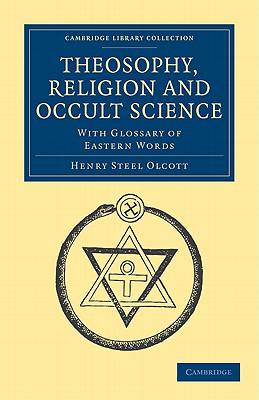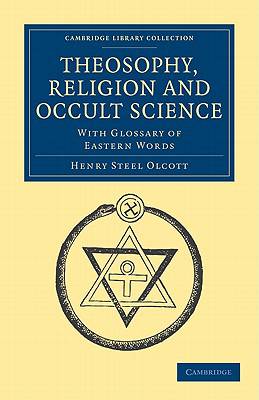
- Afhalen na 1 uur in een winkel met voorraad
- Gratis thuislevering in België vanaf € 30
- Ruim aanbod met 7 miljoen producten
- Afhalen na 1 uur in een winkel met voorraad
- Gratis thuislevering in België vanaf € 30
- Ruim aanbod met 7 miljoen producten
Zoeken
€ 78,95
+ 157 punten
Omschrijving
The renowned lawyer and journalist Henry Steel Olcott (1832-1907) published this work in 1885. In this work Olcott carefully lays out his arguments for the basis of theosophy, arguing for the truth of all religions because they share the same ancient roots or 'ur-religion'. As a founding member and the first president of the Theosophical Society, Olcott uses the work to set out the aims and objectives of the Society and attempts to reconcile his spiritual beliefs with science, reason and modernity. The work also includes accounts of his attempted empirical investigations into hypnotism, mesmerism and other spiritualist activities. The final chapters include discussions of India, Buddhism and Zoroastrian religion. The work was deeply influenced by Helena Blavatsky (1831-1891), then Olcott's close friend but later his opponent. It is a key text of the nineteenth-century theosophical movement and is an indispensable source for research into Victorian occult philosophy.
Specificaties
Betrokkenen
- Auteur(s):
- Uitgeverij:
Inhoud
- Aantal bladzijden:
- 390
- Taal:
- Engels
- Reeks:
Eigenschappen
- Productcode (EAN):
- 9781108072649
- Verschijningsdatum:
- 2/06/2011
- Uitvoering:
- Paperback
- Formaat:
- Trade paperback (VS)
- Afmetingen:
- 140 mm x 216 mm
- Gewicht:
- 494 g

Alleen bij Standaard Boekhandel
+ 157 punten op je klantenkaart van Standaard Boekhandel
Beoordelingen
We publiceren alleen reviews die voldoen aan de voorwaarden voor reviews. Bekijk onze voorwaarden voor reviews.











